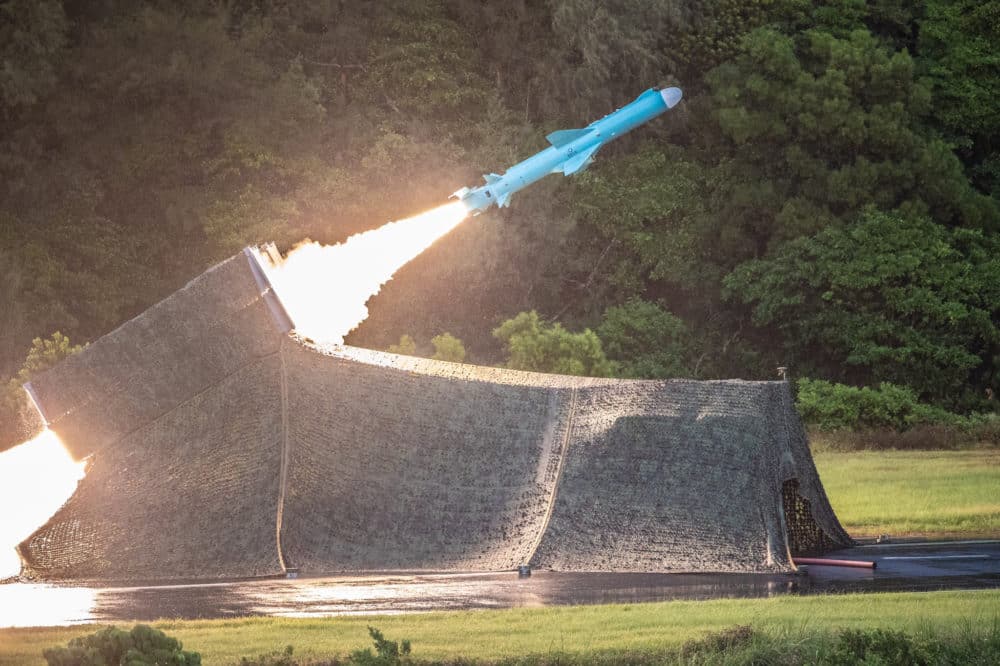- Thread Starter Thread Starter
- #61
1. We should note that Taiwan’s fighter fleet is larger than all of ASEAN’s air forces combined, which is a credible force to deter against war against China till at least 2025 to 2030.
2. The Taiwan Air Force has about 70,000 personnel and over 400 combat aircraft. The current inventory includes approximately 180 older F-5E/F fighters and over 100 more modern Indigenous Defense Fighters (IDFs). Taiwan also operates 55 Mirage 2000-5 fighters out of 60 originally delivered in 1997 and 1998. Taiwan also has purchased 150 F-16 fighters from the United States: 120 single-seat "A" models and 30 two- seat "B" models. On-island deliveries, which began in April 1997, were completed by the end of 1999 [by which time four aircraft had been lost to accidents].
3. As part of their modernisation efforts, Taiwan has acquired long-range oblique photography (LOROP) reconnaissance pods for its F-16s. Taiwanese Air Force has shown photos of 2 intruding PLAAF's Y-8 ASW taken by LOROP pods from its F-16s.
5. But we can always move the yardstick for Taiwan and compare them to the Philippines — only then can we say, ok.
6. In other news, Taiwan held their National Day ceremony on 10 Oct 2020, with celebrations, a parade and a flyover. IMO, a National Day ceremony is good message for total defence.
7. Defense Minister Yen De-fa (嚴德發) said in Sep 2020 that the Taiwanese Air Force has so far this year dispatched 20% more aircraft on patrol missions compared with the same period in 2019.
8. With some reform (as cited by you), Taiwan’s current military modernisation efforts will be seen as not very ineffective but moving in the right direction.
2. The Taiwan Air Force has about 70,000 personnel and over 400 combat aircraft. The current inventory includes approximately 180 older F-5E/F fighters and over 100 more modern Indigenous Defense Fighters (IDFs). Taiwan also operates 55 Mirage 2000-5 fighters out of 60 originally delivered in 1997 and 1998. Taiwan also has purchased 150 F-16 fighters from the United States: 120 single-seat "A" models and 30 two- seat "B" models. On-island deliveries, which began in April 1997, were completed by the end of 1999 [by which time four aircraft had been lost to accidents].
3. As part of their modernisation efforts, Taiwan has acquired long-range oblique photography (LOROP) reconnaissance pods for its F-16s. Taiwanese Air Force has shown photos of 2 intruding PLAAF's Y-8 ASW taken by LOROP pods from its F-16s.
4. From my vantage point, any total defence message, is a unity cry to action in multiple spheres, including military, civil, social, economic, psychological and cyber. Measured by this yardstick, the Taiwanese efforts are just a little lacking — when compared to Finland’s Comprehensive and Military Defence doctrines.@OPSSG, do you think that's a step or two in the right direction?
5. But we can always move the yardstick for Taiwan and compare them to the Philippines — only then can we say, ok.
6. In other news, Taiwan held their National Day ceremony on 10 Oct 2020, with celebrations, a parade and a flyover. IMO, a National Day ceremony is good message for total defence.
7. Defense Minister Yen De-fa (嚴德發) said in Sep 2020 that the Taiwanese Air Force has so far this year dispatched 20% more aircraft on patrol missions compared with the same period in 2019.
8. With some reform (as cited by you), Taiwan’s current military modernisation efforts will be seen as not very ineffective but moving in the right direction.
Last edited:




